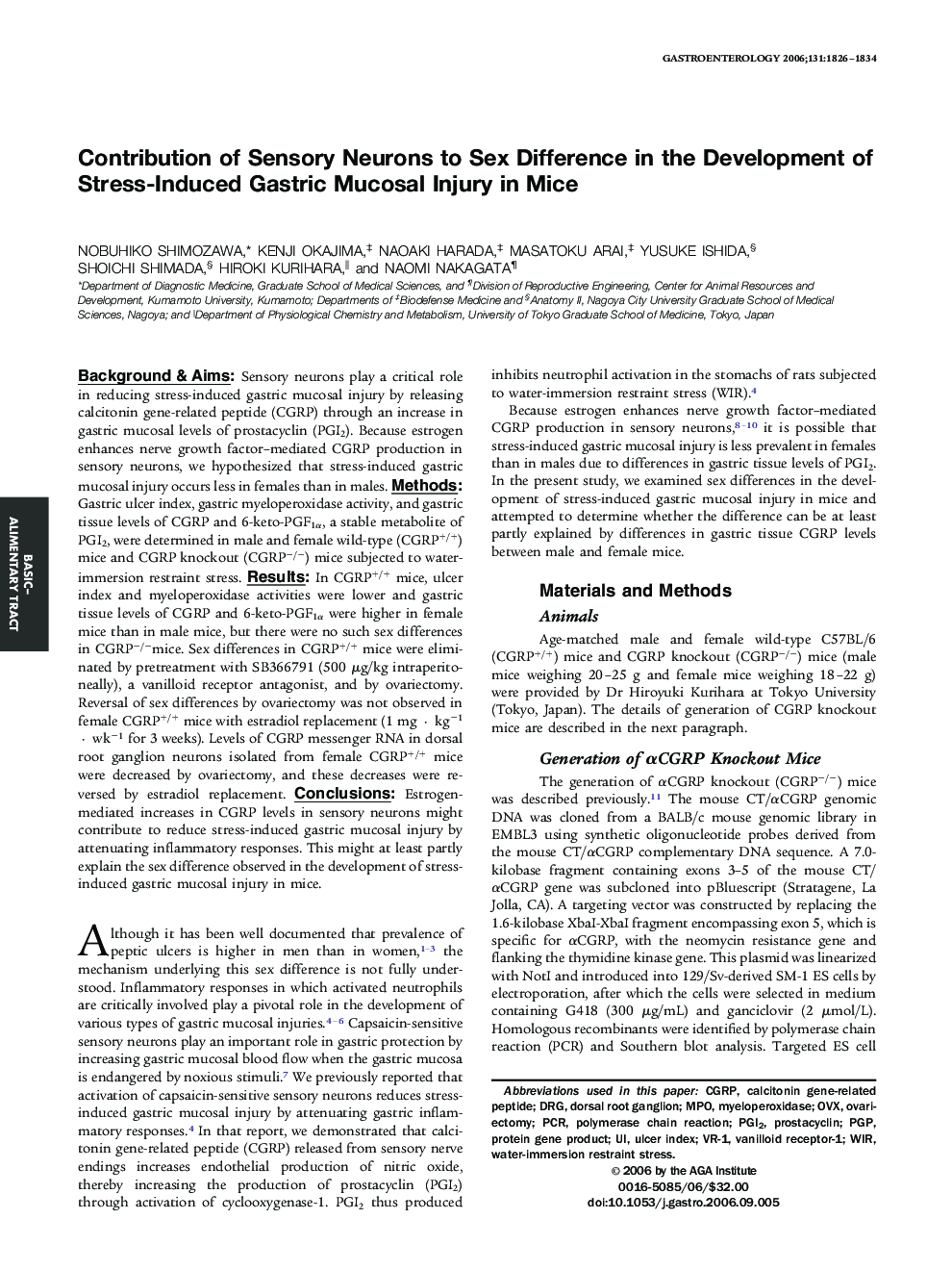| Article ID | Journal | Published Year | Pages | File Type |
|---|---|---|---|---|
| 3299620 | Gastroenterology | 2006 | 9 Pages |
Abstract
Background & Aims: Sensory neurons play a critical role in reducing stress-induced gastric mucosal injury by releasing calcitonin gene-related peptide (CGRP) through an increase in gastric mucosal levels of prostacyclin (PGI2). Because estrogen enhances nerve growth factor-mediated CGRP production in sensory neurons, we hypothesized that stress-induced gastric mucosal injury occurs less in females than in males. Methods: Gastric ulcer index, gastric myeloperoxidase activity, and gastric tissue levels of CGRP and 6-keto-PGF1α, a stable metabolite of PGI2, were determined in male and female wild-type (CGRP+/+) mice and CGRP knockout (CGRPâ/â) mice subjected to water-immersion restraint stress. Results: In CGRP+/+ mice, ulcer index and myeloperoxidase activities were lower and gastric tissue levels of CGRP and 6-keto-PGF1α were higher in female mice than in male mice, but there were no such sex differences in CGRPâ/âmice. Sex differences in CGRP+/+ mice were eliminated by pretreatment with SB366791 (500 μg/kg intraperitoneally), a vanilloid receptor antagonist, and by ovariectomy. Reversal of sex differences by ovariectomy was not observed in female CGRP+/+ mice with estradiol replacement (1 mg  · kgâ1 · wkâ1 for 3 weeks). Levels of CGRP messenger RNA in dorsal root ganglion neurons isolated from female CGRP+/+ mice were decreased by ovariectomy, and these decreases were reversed by estradiol replacement. Conclusions: Estrogen-mediated increases in CGRP levels in sensory neurons might contribute to reduce stress-induced gastric mucosal injury by attenuating inflammatory responses. This might at least partly explain the sex difference observed in the development of stress-induced gastric mucosal injury in mice.
Keywords
Related Topics
Health Sciences
Medicine and Dentistry
Gastroenterology
Authors
Nobuhiko Shimozawa, Kenji Okajima, Naoaki Harada, Masatoku Arai, Yusuke Ishida, Shoichi Shimada, Hiroki Kurihara, Naomi Nakagata,
